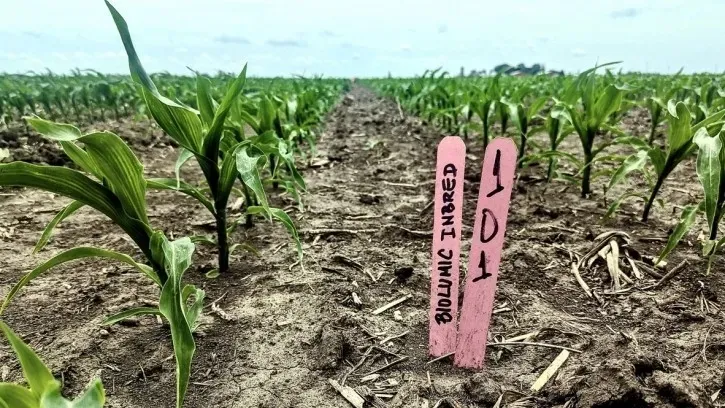Table of Contents
Are you tired of struggling with poor soil quality in your garden? Do you dream of growing healthy, vibrant plants that thrive in well-balanced soil? Look no further than Soil conditioners! At lilyflower.homes, we understand the importance of soil health, and that's why we're excited to share our knowledge on how soil conditioners can transform your garden. From understanding what soil conditioners are and how they work, to choosing the right type for your needs, we'll cover it all. Whether you're a seasoned gardener or just starting out, this article will provide you with the information you need to make informed decisions about your soil care. Let's investigate in!
Soil Conditioners: What They Are and How They Work
Understanding Soil Conditioners
Soil conditioners are like vitamins for your garden. Just like you take supplements to stay healthy, plants need a little help too. These conditioners are materials that improve the quality of your soil, making it more fertile and better for growing plants. Think of them as the magic potion that transforms your garden from drab to fab.
So, what exactly do soil conditioners do? They help the soil retain water, improve drainage, and add essential nutrients. This means your plants get the right amount of water and food, without getting waterlogged or starved. If you've ever tried to grow plants in hard, compacted soil, you know how tough it can be. Soil conditioners can break up that tough soil and make it fluffy and loose, just like the perfect bed for your plants.
- Retain water
- Improve drainage
- Add nutrients
How Soil Conditioners Work
Imagine your soil as a sponge. A good sponge soaks up water and holds it, but it also lets excess water drain away. This is exactly what soil conditioners do. They help the soil act like a sponge, holding onto water and nutrients while allowing excess water to drain. This balance is crucial for healthy plant growth.
Another way soil conditioners work is by breaking up compacted soil. If your soil is hard and clumpy, it's hard for roots to grow and for water to penetrate. Conditioners like compost and peat moss can break up this compacted soil, making it loose and aerated. This helps the roots grow deeper and stronger, which means healthier plants. Plus, it makes it easier for you to dig and plant without breaking a sweat.
Soil Conditioner | Function |
|---|---|
Compost | Adds nutrients and improves soil structure |
Peat Moss | Improves water retention and aeration |
Garden Lime | Adjusts soil pH for better nutrient absorption |
If you want to learn more about improving your soil, check out our guide on and . These articles will give you even more tips to make your garden thrive.
Types of Soil Conditioners and Their Benefits for Your Garden
Organic Soil Conditioners
When it comes to soil conditioners, you have two main options: organic and inorganic. Organic soil conditioners are derived from natural sources, such as compost, manure, and peat moss. These conditioners are rich in nutrients and improve the soil's structure, making it more fertile and better suited for plant growth.
One of the most popular organic soil conditioners is compost. Compost is made from decomposed organic materials, such as food waste and leaves. It is rich in nutrients and microorganisms that help to break down organic matter and improve the soil's fertility. Compost can be made at home or purchased from a garden store.
Organic Soil Conditioner | Benefits |
|---|---|
Compost | Improves soil structure, increases nutrient content |
Peat Moss | Improves soil's water-holding capacity, increases nutrient content |
Inorganic Soil Conditioners
Inorganic soil conditioners, on the other hand, are derived from synthetic or mineral sources. These conditioners are often less expensive than organic conditioners and can provide faster results. However, they may not provide the same level of nutrient content as organic conditioners.
One of the most popular inorganic soil conditioners is perlite. Perlite is a volcanic glass that is expanded to create a lightweight, porous material. It improves soil drainage and aeration, making it ideal for plants that prefer well-draining soil. However, perlite does not provide any nutrient value to the soil.
- container growing,
- As well as your ability to choose the right soil conditioner for your specific needs
"The key to successful container growing is using the right soil and fertilizer. By using a high-quality potting mix and adding a balanced fertilizer, you can create a thriving container garden that will continue to produce all season long."-David Pfeiffer, author of Container Gardening Complete".
How to Choose the Right Soil Conditioner for Your Needs

How To Choose The Right Soil Conditioner For Your Needs
Picking the perfect soil conditioner is like choosing the right flavor of ice cream – it all depends on your taste (and your plants' needs!). First, you gotta figure out what your soil is lacking. Is it dry as a bone? Then you need something to help it hold onto water, like peat moss or compost. Is it super hard and compacted, like a brick? Then you want something to loosen it up, maybe some perlite or vermiculite.
Next, think about the plants you're growing. Some plants, like those humidity-loving lilies, prefer a really moist soil. Others are happy with something a bit drier. The type of soil conditioner you choose will depend on the plants you are planning to grow. For example, if you are growing lilies, you might choose a soil conditioner that improves drainage to prevent root rot. Check out our soil requirements guide for more details.
Soil Problem | Soil Conditioner Solution |
|---|---|
Dry Soil | Peat moss, compost |
Compacted Soil | Perlite, vermiculite |
Poor Drainage | Perlite, vermiculite, sand |
Don't forget about the pH of your soil! Some plants are picky about how acidic or alkaline their soil is. If your soil's pH is off, you might need to add something like garden lime (to raise the pH) or sulfur (to lower it). This can be a bit tricky, so testing your soil's pH is a great idea. You can find kits at most garden centers.
And finally, consider going organic! Organic soil conditioners, like compost and manure, are awesome for your soil and the environment. They're packed with nutrients and beneficial microbes that help your plants thrive. You can even make your own compost at home – it's super rewarding! But if you're short on time, or space, you can always buy some at your local nursery. Check out our guide on fertilizers for more information.
- Test your soil's pH
- Consider organic options
- Match the conditioner to your plants' needs
Choosing the right soil conditioner might seem overwhelming at first, but with a bit of planning, it's easier than you think. Think of it as a personalized recipe for your garden's success! Remember, happy soil equals happy plants.
Before you head out to buy your soil conditioner, take a look at our guide on best pots for your plants. This will help you ensure that you have the right containers to maximize your plants' growth, while also considering the type of soil conditioner you'll be using.
"The best soil conditioner is the one that best suits your specific needs. There is no one-size-fits-all answer." - Anonymous Gardening Expert
Natural Soil Conditioners vs. Chemical Ones: Which is Better for Your Garden

Natural Soil Conditioners Vs Chemical Ones Which Is Better For Your Garden
When it comes to choosing the right soil conditioners for your garden, you're faced with a tough decision: natural or chemical? Both have their pros and cons, but which one is better for your garden? Let's break it down.
Natural soil conditioners, like compost and manure, are rich in nutrients and beneficial microbes that help your plants thrive. They're like a healthy smoothie for your soil! On the other hand, chemical soil conditioners can provide faster results, but they might not be as gentle on your soil and the environment. Think of them like a quick fix, but with potential side effects.
Natural Soil Conditioners | Chemical Soil Conditioners |
|---|---|
Rich in nutrients and beneficial microbes | Provide faster results, but might not be as gentle on soil and environment |
Can be made at home or purchased from a garden store | Often less expensive than natural conditioners, but may have negative long-term effects |
So, which one is better for your garden? If you're looking for a long-term solution that's gentle on the environment, natural soil conditioners are the way to go. But if you need a quick fix and are willing to take the risks, chemical conditioners might be the better choice. Just remember, your soil is like your body - it needs healthy food to thrive, not quick fixes!
- for different plants
- Soil pH and how it affects your plants
"A healthy soil is a happy soil. Use natural soil conditioners to create a thriving ecosystem for your plants." - Anonymous Gardening Expert
Final Thought
By incorporating soil conditioners into your gardening routine, you can say goodbye to poor soil quality and hello to a thriving garden. Remember, healthy soil is the key to healthy plants, and with the right soil conditioners, you can achieve just that. Thanks for joining us on this trip, and we hope you'll check out more of our gardening tips and tricks on lilyflower.homes!